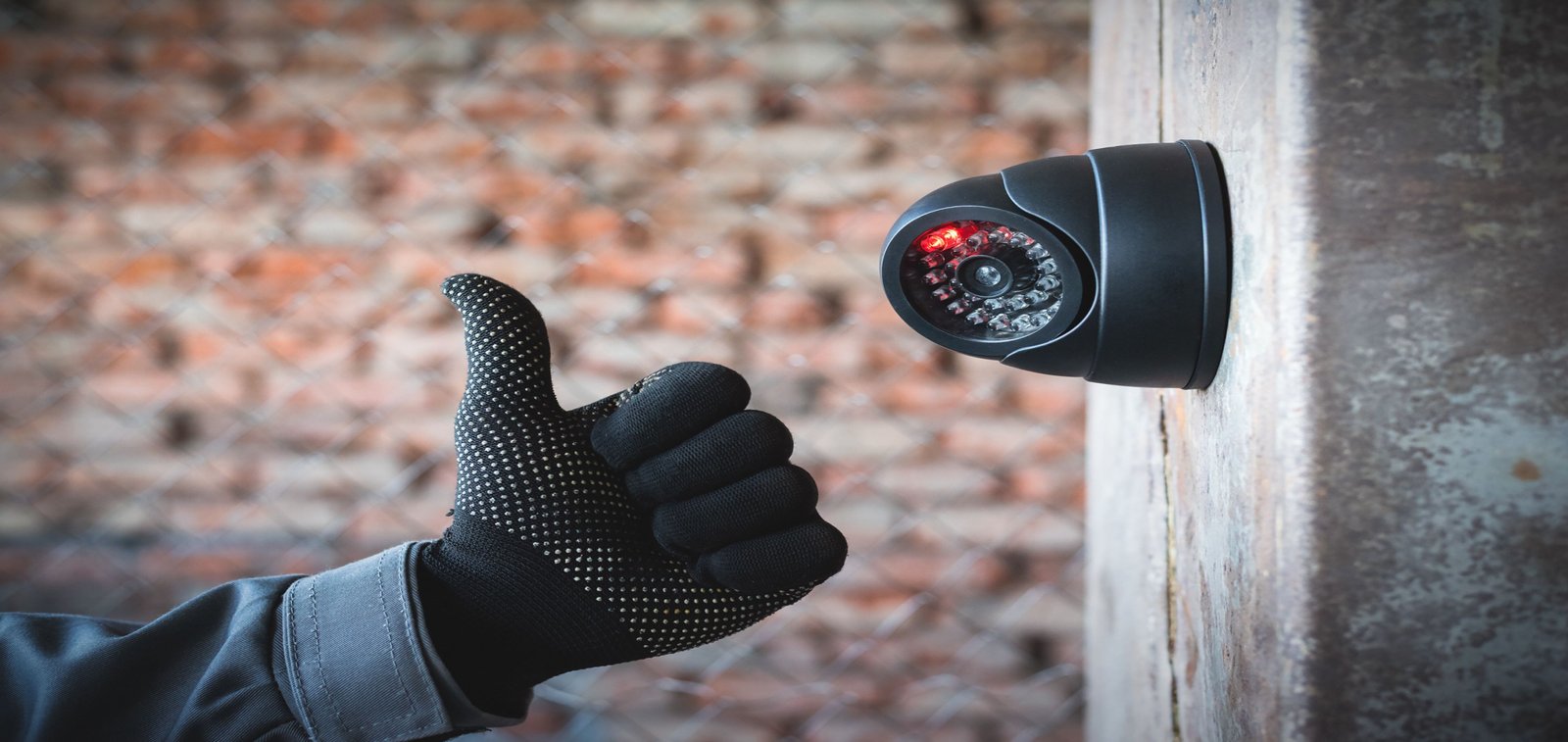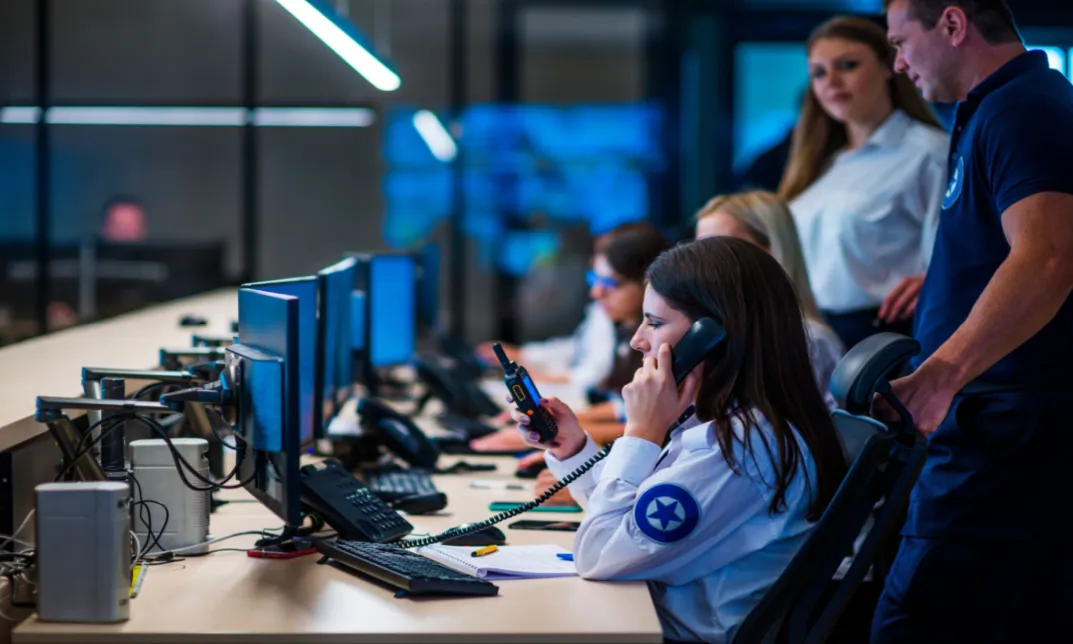No products in the cart.
Did you know that demand for CCTV operators has increased significantly recently? According to industry data, career prospects in this profession have grown by 20% in the previous decade. So, let’s enter the exciting world of CCTV operator. Every glance at a screen has the potential to provide safety and security.
So, in this blog, we will cut back on the layers of being a CCTV operator and explore the complex nature of the job. Let’s start by uncovering the mystery of the CCTV operator job. What distinguishes this professional path, and why is it essential to guarantee safety in varied settings? So, join us on this adventure as we learn how to become a CCTV operator. Read more to find out all you need to know about a CCTV operator in 2024.

What is a CCTV operator? What is its main role?
CCTV operators operate in a control room and analyse live CCTV footage on several displays. They may be required to track up to 15 displays simultaneously. So, it can be using a joystick, keyboard, or other devices to adjust the camera position or zoom remotely.
Moreover, CCTV operators often capture, save, or change digital footage as evidence in police or court proceedings.
Despite being restricted to one room most of the time, the job of a CCTV operator is demanding, often stressful, and rewarding. Their primary roles include safeguarding the safety and security of the areas under monitoring. So, this includes checking live streams for any unexpected activity or potential security risks. If suspicious conduct is seen, the CCTV operator must immediately alert the relevant authorities or take appropriate steps to resolve the issue.
On top of that, a CCTV operator may maintain and operate the surveillance system in real-time. This includes adjusting camera angles and resolving technological matters. Plus, ensuring the surveillance system functions well.
How do you get a job as a CCTV operator?
Obtaining a job as a CCTV operator requires a mix of education, abilities, and practical experience. Here’s a step-by-step approach to becoming a CCTV operator that you can follow:
Step 1: Educational Requirements:
Begin by verifying that you have a high school diploma or its equivalent. There are no official requirements for this job. English, mathematics, and computer and communication technology are all suitable secondary school subjects. You should know of. While some jobs may not need advanced degrees, having a solid educational foundation is beneficial.
Step 2: Look into relevant courses:
Consider taking classes on security, surveillance, or criminal justice. Many trade institutions and community colleges have courses solely designed for CCTV operation. Or you can take a course from Wise Campus. Our CCTV operator course can give many benefits and is better than others. Our course is short, and it has nine modules that are easy to understand and digest.
Moreover, our CCTV operator training course is only £21.99 with no hidden charge or cost for a limited time. Plus, we achieve a 99% pass rate with our outstanding training partners and are trusted by over 20,000 students. If you do not pass the first time and do not wish to repeat the course, we will refund you under our no-quibble, full money-back guarantee within 14 days. So, you have nothing to lose and everything to gain!
Step 3: Gain Technical Proficiency:
Develop a thorough grasp of the technical elements of CCTV systems. Furthermore, with our training, you may learn how to use surveillance equipment and diagnose common problems. Additionally, you will stay current on the newest technical breakthroughs in the industry.
Step 4: Certifications:
Acquiring suitable qualifications might help you gain a reputation. Explore qualifications such as the Certified CCTV Operator given by reputable institutes. Or you can take our CCTV operator training. So, after clearing this course’s MCQ/Assignment exam, you will be entitled to a Certificate of Completion from the Wise Campus. Thus, it will serve as evidence of your considerable professional progress. Hence, these credentials will show your expertise and experience in the industry.
Step 5: Build Practical Experience:
Internships, entry-level jobs, and volunteer opportunities in the security and surveillance industries can help you gain practical experience. Thus, practical experience is crucial for gaining insights into real-world issues.
Step 6: Networking:
Networking events, internet forums, and social media allow you to interact with industry professionals. Hence, building a network can lead to new career chances and valuable business insights.
Step 7: Create a strong resume.
Now, you have taken all the previous steps. So, create a resume. That will showcase your educational background, credentials, and relevant experience or talents. Thus, tailor your CV to highlight your qualifications for a CCTV operator job description.
Step 8: Job Search:
To find CCTV operator jobs, here are a few ways you can go for. Explore Internet job boards, corporate websites, and recruiting agencies. Moreover, look for employment in retail, hotel, transportation, and security services.
Step 9: Prepare for Interviews:
This is the final step. Now that you have found a job opportunity, you only need to impress them. So, prepare to discuss your technical skills, expertise, and grasp of the duties related to CCTV operation. Thus, show your capacity to manage complex conditions while being vigilant.
The roles and skills you need to know as a CCTV operator.
As most people believe, a CCTV operator’s job entails more than just stopping crime.
The most typical jobs and responsibilities of CCTV operators are:
- Watching and keeping track of CCTV systems.
- Observe and analyse live and recorded footage.
- To improve the image, move the cameras around with a remote control device, such as a mouse or joystick.
- Identifying and reporting any suspicious or illegal activity.
- Coordinating with law enforcement and emergency services as needed.
- Ensure the safety and security of the premises.

Moreover, the function of a CCTV operator demands a bank of abilities and personal skills to do this job. As, operators may witness disturbing incidents when viewing the tape. So, it is far from a dull job, as many people would assume. Hence, to overcome this and do their duties well, you will need the following skills:
- Skill in using CCTV equipment and software.
- Excellent attention to detail and observation abilities.
- The ability to stay concentrated and awake for extended periods.
- Effective communication and reporting abilities.
- Understanding the privacy laws and regulations.
- The ability to remain calm at all times and operate well under pressure.
- Understanding of security processes and procedures.
- Capable of working alone and as a group.
- Problem-solving ability and critical thinking skills.
- Physical and mental toughness to deal with stressful situations.
What can you expect in a CCTV operator job?
- Job security: CCTV operators are needed with the growing need for surveillance and security measures. Hence, they provide work stability and security.
- Contributing to safety and security: As a CCTV operator, you ensure the premises’ safety and security. Thus, by preventing and responding to illegal activity or crises.
- Varied work environments: CCTV operators can operate in many situations, including retail businesses, banks, public facilities, and transit hubs. Hence, it creates a dynamic work environment.
- Opportunities for advancement: With experience and extra training, CCTV operators can develop their careers. It can be becoming supervisors or specialising in certain areas of security and surveillance.
- Earning Potential: The values below are simply a guideline. Actual compensation rates may vary based on factors affecting employment, including location, firm size, and job demand.
A CCTV operator earns around £10–15 per hour. You will make more as you gain experience and may also be eligible for a shift allowance if you work nights. Of course, you can advance to the position of security team leader.
Starting salaries are often based on the National Minimum Wage (NMW) or the National Living Wage (NLW). As of 2024, the National Minimum Wage is
- £6.40 per hour for workers under 18.
- £8.60 per hour for workers aged 18 to 20.
- £11.44 per hour for workers aged 21 and over.
Hence, you might make up to £12.00–£13.00 per hour with expertise. Moreover, you may receive a shift allowance too.
So, on a year scale, you can expect to earn in the range of £23000-£29000. But, it will steadily increase as the years go by due to increased demand for CCTV operators.
Conclusion.
To conclude, being a CCTV operator is more than a job; it is a commitment to safety, security, and continuous learning. A CCTV operator is a silent guardian who monitors things using technology. That is, stay safe in your surroundings and help to create a safe environment for people and property. Their work entails more than just watching screens. Thus, it requires a dedication to safety and a strong feeling of responsibility in the face of possible threats.
Moreover, the need for qualified CCTV operatives is growing, providing not only a job but also a route to a career that contributes to social well-being. So, if you’re ready to begin this exciting adventure, you must prepare yourself. So, with the skills, knowledge, and determination, you will be able to thrive as a CCTV operator in 2024.








